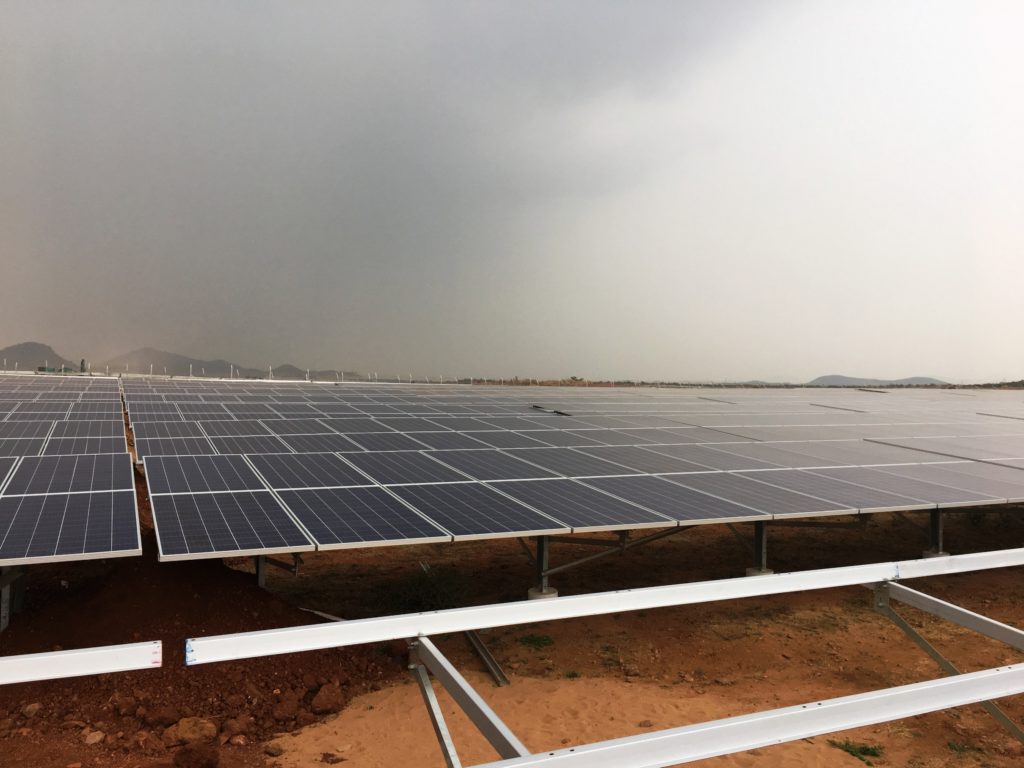From pv magazine India
How are you experiencing the Covid-19 crisis? How has your work changed?
Reacting quickly to the changing atmosphere, U-Solar offered “work from home” options to all employees in early March. Our first course of action – a post-lockdown announcement on March 25 – was to evacuate all of our site employees for safety reasons. So currently all of our projects have been halted.
We are utilizing this time productively to improve internal processes and increase technical skills while remote work continues. U-Solar is strategizing for the impacts of Covid-19 on the solar EPC industry through two operational standpoints – project timelines and project costs.
What’s the impact on your project timelines?
All our current site operations have been halted, and this is throughout all industries in India. So delays are likely.
All of U-Solar’s EPC projects are expected to resume when the lockdown ends on April 15, and our immediate focus will be on material delivery. The supply chain cycles of solar module manufacturers are expected to pick up within 10 to 15 days past this date. By the month of May, all current project operations should resume to optimal conditions.
For our newer projects, U-Solar has been working with our vendors to understand their supply chain realities and has concluded that clearing backlogs in orders might take 45 to 90 days.
Which projects have had to be postponed or canceled?
This is an expected delay due to the lockdown, and it will affect about 5 MWp capacity of solar projects in U-Solar’s pipeline, for projects of 1 MWp and above. However, for installations between 100 kWp and 500 kWp, we do not foresee delays. Our operations team is working to ensure we can meet our six-month timelines for our projects, depending on the factors mentioned.
Do you see any impact on module prices? What opportunity do you see for Indian manufacturers?
There may be a drop in prices as Chinese solar module manufacturers have been forced to stockpile their modules. However, this is strongly dependent on international demand. There is no defined visibility on the changes in prices – since India has been affected in March, and will need more time to assess the factors impacting project costs. However, U-Solar tries to use Made In India solar panels unless otherwise specified predominantly, so we feel confident in our commercial stability.
Indian module manufacturers might also strategize to reduce prices, since they have a chance to take a larger market share until the Chinese market recovers. In essence, it would also be an excellent time to implement Made in India solar cells and wafers, which are generally imported from China. Reducing our dependence on the Chinese market would benefit the solar industry as a whole, from a cost stability and quality control perspective.
Overall, U-Solar does estimate shifts in project timelines to accommodate for the situation we are dealing with at a global level. Costs of material and equipment are dependent on market conditions once import business resumes, and so our assessment is experienced speculation.
How could Covid-19 pandemic reshape the future of clean energy?
It is an excellent time to restrategize and market clean energy, as, while under lockdown, there have been improvements globally in environmental aspects. The urgency to solve a crisis is in the mindset of governments, organizations and communities, so we must focus on keeping this alive for climate change.
This content is protected by copyright and may not be reused. If you want to cooperate with us and would like to reuse some of our content, please contact: editors@pv-magazine.com.




2 comments
By submitting this form you agree to pv magazine using your data for the purposes of publishing your comment.
Your personal data will only be disclosed or otherwise transmitted to third parties for the purposes of spam filtering or if this is necessary for technical maintenance of the website. Any other transfer to third parties will not take place unless this is justified on the basis of applicable data protection regulations or if pv magazine is legally obliged to do so.
You may revoke this consent at any time with effect for the future, in which case your personal data will be deleted immediately. Otherwise, your data will be deleted if pv magazine has processed your request or the purpose of data storage is fulfilled.
Further information on data privacy can be found in our Data Protection Policy.